

Group chief legal and risk officer and General counsel | STC


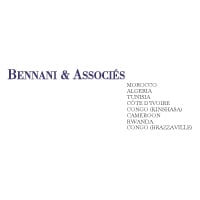
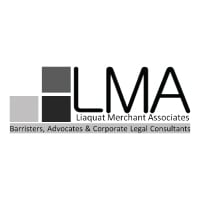
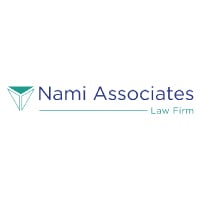
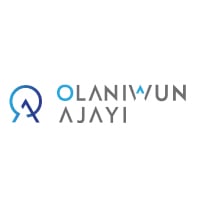
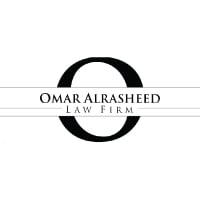
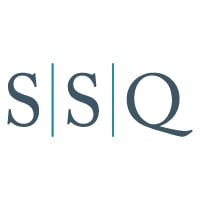
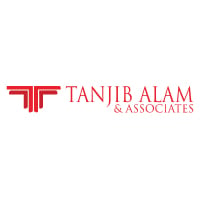


Mathad F. Alajmi
Group chief legal and risk officer and General counsel | STC
What are the projects that you are most proud of working on over the past 12 months?
We have recently finalised the sale of a majority stake in our tower company, Tawal, to the Public Investment Fund (PIF), as part of the agreement for Tawal to acquire Lattice, PIF’s tower company. This was a highly complex transaction, involving multiple steps and considerations to ensure a favourable outcome for all parties involved. With over 20,000 tower assets in the Kingdom and several thousand more internationally, we have established one of the largest tower companies in the region, valued at SAR21.94bn ($5.85bn).
How do you approach managing legal aspects during periods of instability or crisis to ensure the organisation’s resilience?
During periods of instability or crisis, the in-house legal department plays a crucial role in safeguarding the organisation’s legal and operational resilience. Our approach to managing legal aspects in such times involves the following key steps:
Proactive risk assessment and planning: we begin by identifying and assessing potential legal risks that could arise due to the crisis. This includes reviewing existing contracts, compliance obligations, and litigation risks. We also anticipate legal challenges specific to the crisis and develop contingency plans.
Clear communication and collaboration: close coordination with senior leadership, business units, and external advisers is essential. Ensuring that legal considerations are integrated into decision-making processes helps the organisation navigate challenges effectively. During a crisis, we provide legal guidance in real time, offering clear and concise advice to mitigate risks and enable informed decision-making.
Maintaining legal compliance: in times of crisis, the legal landscape may evolve rapidly, with new regulations, emergency measures, or government mandates. It is critical to stay informed and ensure the organisation remains compliant with all applicable laws and regulations.
Contract management and negotiation: a key aspect of managing legal issues during a crisis is reviewing and renegotiating contracts as needed. We may need to address force majeure clauses, payment deferrals, and other contract modifications. In such cases, the goal is to preserve key relationships, ensure business continuity, and minimise potential liabilities.
Crisis communication and reputation management: the legal function helps safeguard the organisation’s reputation during a crisis by advising on sensitive communications. Whether it’s dealing with public statements, regulatory disclosures, or internal messaging, we help ensure that communications are legally sound and do not expose the company to unnecessary risks.
By taking a strategic, proactive, and collaborative approach, the legal department helps the organisation navigate periods of instability while minimising legal risks and protecting its long-term interests.
Based on your experiences in the past year, are there any trends in the legal or business world that you are keeping an eye on that you think other in-house lawyers should be mindful of?
Over the past year, several emerging trends — particularly related to AI — have caught our attention. These trends are shaping both the legal landscape and business strategies, and we believe they are crucial for in-house lawyers to monitor closely. Here are a few key areas where AI is driving significant change:
AI and data privacy regulations: as AI technologies evolve, so too does the complexity of managing personal data. Many jurisdictions are introducing or updating regulations around data privacy, such as the GDPR in Europe. In-house legal teams must be vigilant about how AI tools process, store, and analyse personal data. There is an increasing focus on ensuring that AI systems are compliant with data privacy laws, particularly regarding consent, transparency, and security.
Intellectual Property (IP) issues in AI development: as AI models become more advanced and increasingly integrated into business operations, questions about IP ownership, patentability, and licensing are more pertinent than ever. In-house lawyers need to stay on top of how AI innovations are protected, especially when AI systems create new content or inventions. The lines between human- and AI-created IP can be blurred, and navigating these complexities will require clear legal frameworks.
AI ethics and accountability: AI raises significant ethical considerations, particularly regarding bias, fairness, transparency, and accountability. Companies must ensure that their AI systems are designed and deployed in ways that avoid discriminatory outcomes and promote ethical practices. In-house legal teams should work closely with business leaders to establish guidelines, monitor AI implementation, and stay informed about evolving regulatory requirements related to AI ethics. This includes considering the implications of AI in decision-making processes that affect employees, customers, and other stakeholders.
AI eegulation and governance: governments and regulatory bodies are increasingly focusing on regulating AI technologies, with several countries proposing AI-specific regulatory frameworks. Monitoring these regulations — whether they’re aimed at protecting consumers, promoting competition, or ensuring ethical use — is critical for in-house legal teams. Companies must anticipate how new AI regulations will impact their operations and ensure compliance as the regulatory landscape evolves.
In-house legal teams need to be proactive in monitoring AI-related trends, particularly as they intersect with changing regulations and business practices. By staying ahead of these developments, legal functions can help ensure that their organisations use AI responsibly, remain compliant with relevant laws, and are prepared to navigate the complexities that AI introduces to the legal landscape.
What do you think are the most important attributes for a modern in-house counsel to possess?
As the role of in-house counsel continues to evolve, several key attributes are essential for effectively supporting the organisation and ensuring its success. These attributes go beyond traditional legal expertise and include a combination of skills, qualities, and mindset. Here are some of the most important:
Business acumen: modern in-house counsel must understand the broader business context in which their company operates. This includes a solid grasp of the company’s industry, market dynamics, and overall business strategy. The ability to align legal advice with business goals is crucial in helping the organisation make informed decisions that balance legal risks with strategic opportunities.
Pragmatism and practical problem-solving: while legal expertise is vital, in-house counsel must be able to provide practical, solutions-oriented advice. The ability to navigate complex legal issues while considering the business’s operational realities is key. Modern in-house counsel must focus on finding workable solutions — not just identifying legal risks — and be willing to offer creative alternatives that minimise risk while enabling the business to move forward.
Adaptability and agility: in-house counsel must be agile and able to adapt to rapidly changing legal, regulatory, and business environments. With the fast pace of change in technology, regulation, and market conditions, the ability to quickly understand and respond to new challenges is critical.
Leadership and strategic thinking: in-house counsel should possess leadership qualities, whether managing a team or influencing decision-making at the executive level. A modern in-house lawyer must think strategically, aligning legal considerations with the organisation’s long-term goals and vision.
Crisis management and resilience: the ability to remain calm under pressure and manage legal challenges in times of crisis is an important quality for in-house counsel. Whether facing litigation, regulatory scrutiny, or an unexpected business disruption, in-house lawyers must be able to lead with resilience, manage risks effectively, and help guide the organisation through difficult situations.
Finally, modern in-house counsel must possess a high standard of ethical judgement and integrity. They must be able to navigate complex legal and ethical challenges, ensuring that the company not only complies with the law but also upholds a strong reputation for ethical business practices.
The role of in-house counsel is no longer limited to legal expertise; it’s also about being a strategic adviser, a trusted business partner, and a leader within the organisation. By combining legal knowledge with business insight, communication skills, and a strong ethical foundation, modern in-house counsel can contribute significantly to the organisation’s success and resilience in an increasingly complex world.
Group Chief Legal and Risk Officer and General Counsel | stc